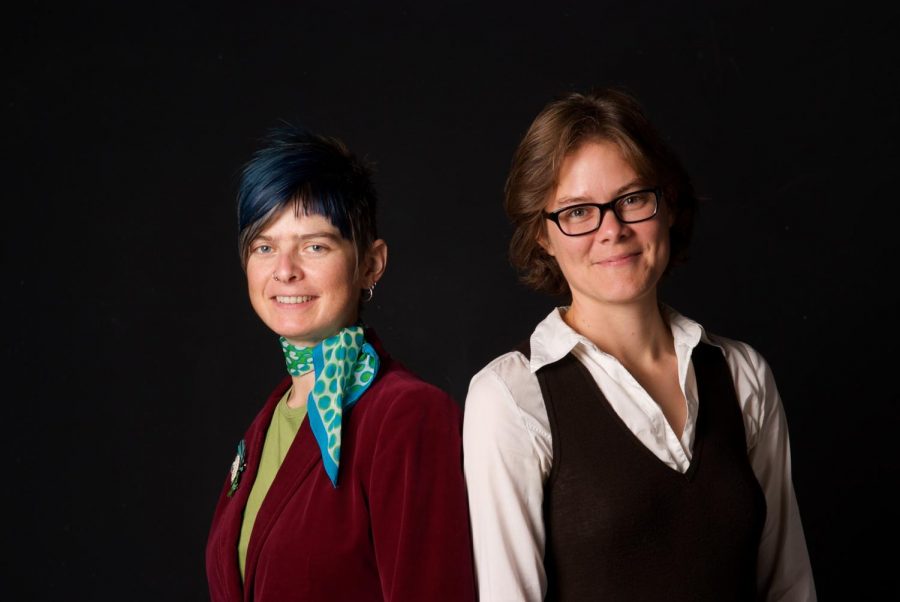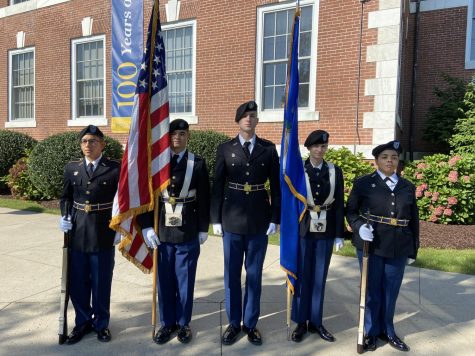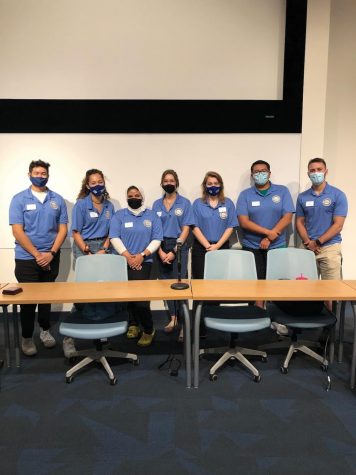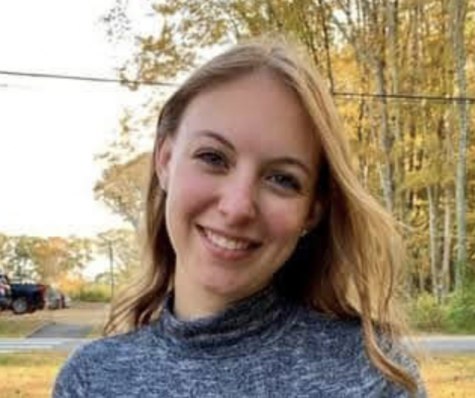University Introduces “The Welcome Project”
Last summer, Dan May, the University of New Haven’s provost and senior vice president for academic affairs, attended a conference for The New American Colleges and Universities consortium at Valparaiso University in Indiana. The New American Colleges and Universities consortium contains 25 different colleges and universities across the country, including the University of New Haven.
At the conference, May heard of a project started by Liz Wuerffel and Allison Schuette, professors at Valparaiso University. This project is called the Welcome Project. May was inspired by this project and began looking into ways to bring this project to the University of New Haven.
On Friday, Feb. 2, May was able to bring his ideas to life. A variety of students, faculty and staff from the University of New Haven filed into Buckman 120 to listen to a presentation from May, as well as Wuerffel and Schuette, on the Welcome Project.
The Welcome Project was first established back in 2009 after Wuerffel heard of uncomfortable situations some Chinese students at Valparaiso University had experienced. She wanted to document these instances in order to better inform people of difference so that they would not be confused or startled by it. Wuerffel approached Schuette as a partner, and Schuette agreed after experiencing similar situations with some of her first-year students who had never been around someone different from them. Since their beginning, Wuerffel and Schuette have collected over two hundred stories.
May is excited to utilize the project at the university, as he believes the campus could truly benefit from the project in two main ways. The first way is that this project serves as a tool to open discussion about campus climate and campus perspectives. The second way is that this project is an opportunity to engage students and faculty from various departments in discussion.
During the presentation, Wuerffel and Schuette stressed that the Welcome Project is not directed specifically at international students like the ones that sparked this movement in the first place, but rather for people from varying identity groups to share their story and be heard by a wide variety of people. The Welcome Project helps teach people to not judge a book by its cover.
Schuette said, “these stories teach me to ask questions that go beyond my first assumptions and to listen for the storyteller’s way of framing their own experience.”
At the university, the Welcome Project has not officially kicked off yet. May hopes to find half a dozen university faculty or staff interested in supporting this project, and hopefully from varying departments. Once the project does get off the ground, May hopes to tie the project into academics at the university, through courses dedicated to the project or even in some introductory writing courses, communications courses, or honors courses.
May’s biggest goal with bringing the project to the university is to approach problems of difference in an open and comfortable environment. May said he feels that discussions on this topic are often included in trainings or orientation programs and often force participation from people who may not be so willing, but with the Welcome Project he hopes to find more willing participants.
May is extremely excited about this project and its future at the university, and hopes that the Welcome Project will eventually be expanded into the West Haven community for even more participation.

Caitlin is a freshman pursuing a degree in Communications with a concentration in Television Production. She is a member of the Chargers Marching band...












